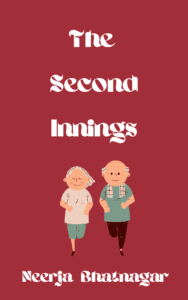
When we think about xenophobia in Indian history, it’s tempting to assume that ancient India must have fiercely guarded its borders and culture. But the real story is far richer and more welcoming. From traders on the Silk Route to scholars from Greece, Persia, and China, India opened its doors—and its heart—to countless cultures. Through every wave of migration and interaction, India absorbed, adapted, and blossomed, proving that acceptance, not fear, shaped her timeless civilisation.
But did India ever experience xenophobia in its history? The short answer: while instances of resistance to external threats existed, the larger cultural ethos remained inclusive and welcoming.
Historical Evidence of India’s Embrace of Diversity
-
Ancient Migrations and Cultural Assimilation
From the Indo-Aryans to the later migrations of Greeks, Scythians, Kushans, and Huns, India saw an influx of different peoples. Instead of rejecting these newcomers, Indian society absorbed them. The Kushan rulers, for example, not only ruled over parts of India but also adopted Indian religions like Buddhism and contributed to Gandhara art—a fusion of Greek and Indian styles. -
The Spread of Buddhism
Indian monks travelled across Asia, taking with them the message of peace and acceptance. Buddhism’s spread into Tibet, China, Japan, and Southeast Asia is a testament to India’s cultural outreach based on sharing, not domination. -
The Islamic Era and Synthesis
When Islamic rule began in India around the 12th century, despite initial conflicts, Indo-Islamic culture flourished. New forms of architecture (like the Taj Mahal), music (qawwali), cuisine (biryani), and clothing emerged, beautifully blending Indian and Persian influences. -
Colonial Encounters
While colonisation by the British brought exploitation, it also introduced new ideas—modern education systems, railways, legal structures—which India, after independence, reimagined for its use.
India’s ability to adapt and integrate without losing its core identity has been its greatest strength.
Instances of Resistance: Was It Xenophobia?
There were indeed periods of resistance, especially when external influences were seen as a threat to local autonomy or spiritual traditions:
-
The protection of local temples and educational centres during Islamic invasions.
-
Revolts against colonial British practices that undermined Indian traditions (e.g., the 1857 First War of Independence).
However, these were movements for self-respect, not hatred of outsiders. India’s approach was generally not to expel the foreign but to engage with it, debate it, and Indianize it.
Modern Implications: A Lesson for Today
As the world becomes increasingly polarised, India’s historical example is vital:
-
True strength lies in openness, not isolation.
-
Cultural confidence enables a society to absorb new ideas while retaining its essence.
-
Diversity, when embraced thoughtfully, creates a richer, stronger society.
In a time when xenophobia rises globally, remembering India’s heritage of acceptance can offer a powerful antidote.
India’s Soul Is Syncretic
From the Upanishads’ assertion that “Truth is one, paths are many,” India’s journey teaches us that difference does not mean division. It’s a reminder that greatness is built not by exclusion but by welcoming the world with wisdom and balance.
This post is powered by Blogchatter A2Z challenge. You may check all my posts of this challenge here.
Neerja Bhatnagar
Feel free to connect with me on social media to stay updated on more content like this!
Instagram | Facebook | YouTube |Twitter |Podcast |
I have written 3 solo books and 3 anthologies. You can buy my books on Amazon. If you are on Kindle Unlimited, you can read them for free. Pls, do check and share your reviews.




Much needed post for the current times & it’s supported with well-established facts. I guess, as you had mentioned in your theme reveal, Xenophilia would be more appropriate than Xenophobia in the title.
Thanks Seetha!
Loved the thoughtfulness behind this piece on India’s enduring embrace of diversity. It’s a powerful reminder that our strength lies in unity amidst diversity.
Thank you so much for your kind words! 🙏 Yes, India’s history beautifully reflects how unity can thrive in diversity — a legacy we must continue to celebrate and uphold.
Interesting facts presented in a lucid manner. Quite insightful ❤️
Thank you so much! 😊 I’m glad you found it insightful — presenting complex ideas in a simple, relatable way is exactly what I aim for. Your encouragement means a lot! ❤️